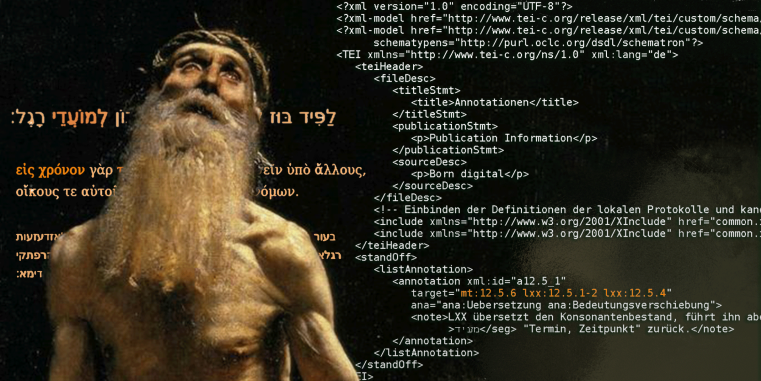
Digital edition of ancient textual witnesses of the Book of Job with presentation of the translation method
Project lead and contact person: Prof. Dr. Johannes Schnocks
Faculty and Department: Department 02 Catholic Theology – Institute for Biblical Exegesis and Theology (IBET)
Project duration and funding agency:
- Application stage, planned for three years
- Aimed funding agency: German Research Foundation
Research question:
The biblical Book of Job is a text that deals with human suffering. Job, who has fallen into misfortune, discusses the matter with his "friends" and maintains that it is not his own misconduct that would have triggered God's punishment.
Today, the book is regarded as a great work of world literature. For the ancient Jewish and Christian reception, however, it was a difficult text: How can it be that God does not punish bad behaviour and does not reward good behaviour with happiness in life? Is it good and religiously appropriate for suffering people like Job to rebel, argue with God and accuse him of treating them unjustly? The various textual witnesses and translations reflect the different, but sometimes analogous, ways of dealing with these irritations.
Project abstract:
The project of a digital edition of the ancient textual witnesses of the Book of Job wants to translate the Aramaic translations - two fragmentary translations from Qumran and the rabbinic Targum - into German and compare them with the Hebrew original. As a "control variable", the - much better edited - Greek text of the Septuagint is also to be included.
In a synopsis of the original texts and their German translations, the digital edition makes differences visible and explains and comments on how the ancient translators might have worked. The method of translation is thus clearly worked out. A digital edition of the texts is a prerequisite for the entire project, since a printed edition in the form of a book would quickly become confusing and hardly manageable due to the number of textual witnesses to be compared and the complex interconnections. The digital edition to be developed in the project therefore also serves as a prototype of networked editions, which is to be made usable for further edition projects in the digital humanities.
Digital methods to be used:
- Oxygen incl. the extension by XPointer (publicly available in Git)
- XML
- TEI markup
Role of the SCDH in this project:
- Technical support
- Advice on the funding application
- Development of a prototype for digital editions

